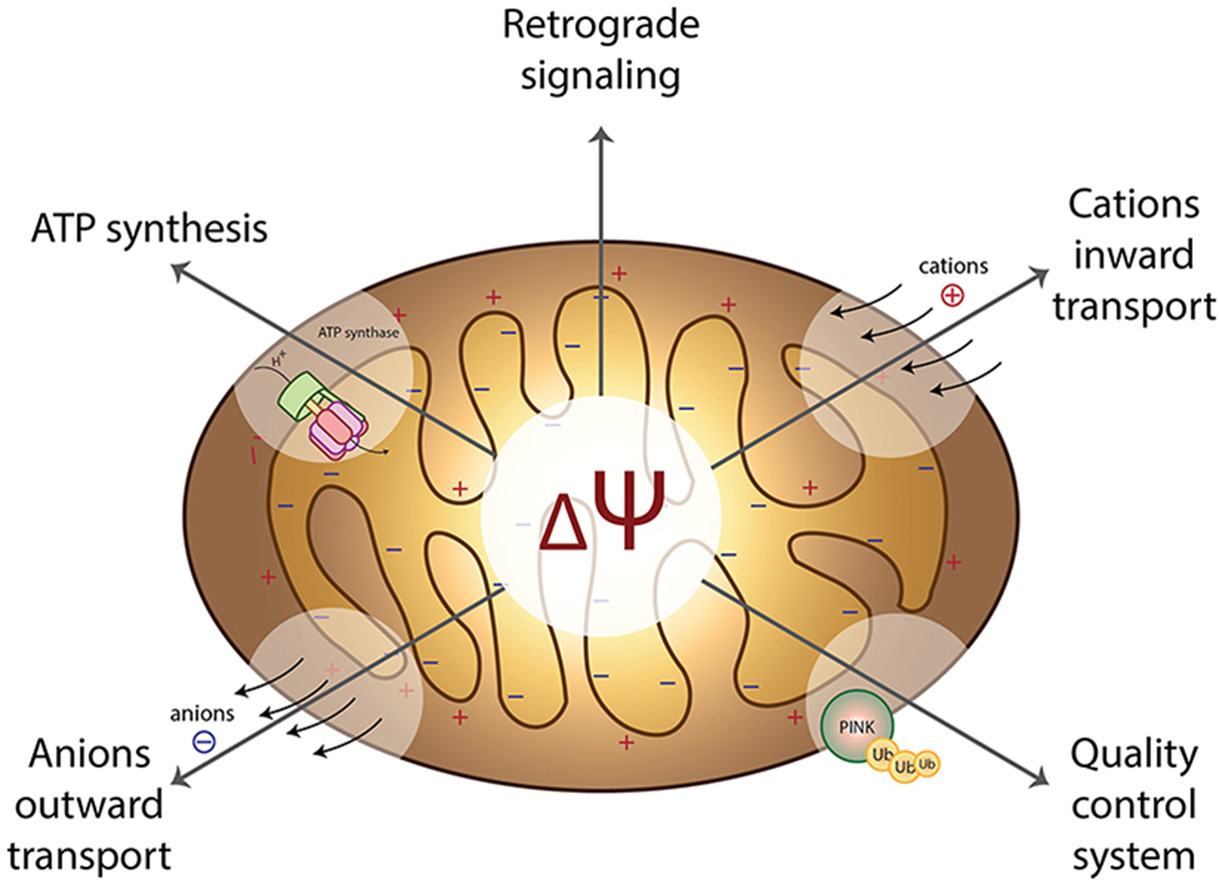Mitochondrial Membrane Potential Analysis Service
- Drug Mechanism Studies and Toxicity Evaluation: Screen for potential mitochondrial toxicity and assess how candidate compounds regulate cellular energy metabolism.
- Apoptosis and Autophagy Pathway Monitoring: Detect whether cells are undergoing apoptosis by tracking changes in mitochondrial membrane potential.
- Disease Model Research: Investigate mitochondrial pathophysiology in disease contexts and analyze metabolic reprogramming in tumors.
- Mitochondrial Function Assessment: Evaluate the integrity of the electron transport chain and the efficiency of ATP synthesis.
Mitochondrial Membrane Potential Analysis Service is a research-oriented service based on fluorescent dye labeling and high-sensitivity detection technologies, designed to precisely assess the electrochemical gradient across the inner mitochondrial membrane. This service is applicable for studying mitochondrial functional status, apoptosis progression, oxidative stress response, and drug toxicity screening.
The mitochondrial membrane potential is the transmembrane voltage difference generated by the proton gradient across the inner mitochondrial membrane, directly resulting from the activity of the electron transport chain. Mitochondrial Membrane Potential (ΔΨm) is one of the key biophysical indicators reflecting mitochondrial health and function. It not only drives ATP synthesis but also regulates calcium homeostasis, reactive oxygen species (ROS) production, and apoptotic signaling pathways. Dynamic changes in mitochondrial membrane potential serve as early warning signals for cellular damage, disease progression, and drug toxicity, making it widely utilized in both basic biology and pharmaceutical research.
Fluorescent probes such as JC-1, TMRM, and TMRE are lipophilic, cationic dyes that accumulate in cells in a membrane potential-dependent manner. These dyes exhibit different fluorescent signals depending on whether they are in monomeric or aggregated form, enabling quantitative analysis of membrane potential changes.

Zorova LD. et al. Anal Biochem. 2018.
Utilizing high-performance fluorescent probes in combination with platforms such as flow cytometry, fluorescence microscopy, and microplate readers, MtoZ Biolabs offers Mitochondrial Membrane Potential Analysis Service to perform real-time or endpoint detection of mitochondrial membrane potential in sample. This service supports researchers in comprehensively evaluating cellular energy metabolism and mitochondrial functional status.
Analysis Workflow
The general workflow of Mitochondrial Membrane Potential Analysis Service is as follows:
1. Sample Preprocessing
Collect and wash cells to remove interfering components.
2. Fluorescent Probe Staining
Select appropriate probes based on experimental goals and incubate samples for a defined period.
3. Fluorescence Detection
Detect fluorescence signals using flow cytometry, fluorescence microscopy, or a microplate reader.
4. Data Analysis
Analyze membrane potential status based on fluorescence ratios or intensity measurements.
5. Result Output
Generate images, data tables, statistical analysis results, etc.
Service Advantages
1. Advanced Analysis Platform: MtoZ Biolabs established an advanced Mitochondrial Membrane Potential Analysis Service platform, guaranteeing reliable, fast, and highly accurate analysis service.
2. One-Time-Charge: Our pricing is transparent, no hidden fees or additional costs.
3. High Sensitivity and Stability: Fluorescent probes deliver strong signals with low background, suitable for detecting subtle changes.
4. Combination of Dynamic and Endpoint Detection: Supports both real-time kinetic monitoring and fixed time point analysis.
Sample Submission Suggestions
Sample Types: Adherent or suspension cell samples; compatible with mammalian, plant, or microbial cell lines.
Storage Conditions: Fresh processing is recommended. For short-term transport, samples can be shipped at 4°C; for long-term storage, liquid nitrogen freezing is advised.
Additional Notes: Avoid using culture media containing phenol red or other fluorescence-interfering components. Please contact our technical support team prior to submission for detailed and customized sample preparation guidance.
Applications
Application examples of Mitochondrial Membrane Potential Analysis Service:
Deliverables
1. Comprehensive Experimental Details
2. Materials, Instruments, and Methods
3. Raw Images and Data
4. Analysis Result
5. Customized Report
Related Services
Mitochondrial ROS Analysis Service
Mitochondrial Oxidative Phosphorylation Analysis Service
Mitochondrial Respiratory Chain Enzyme Analysis Service
How to order?







